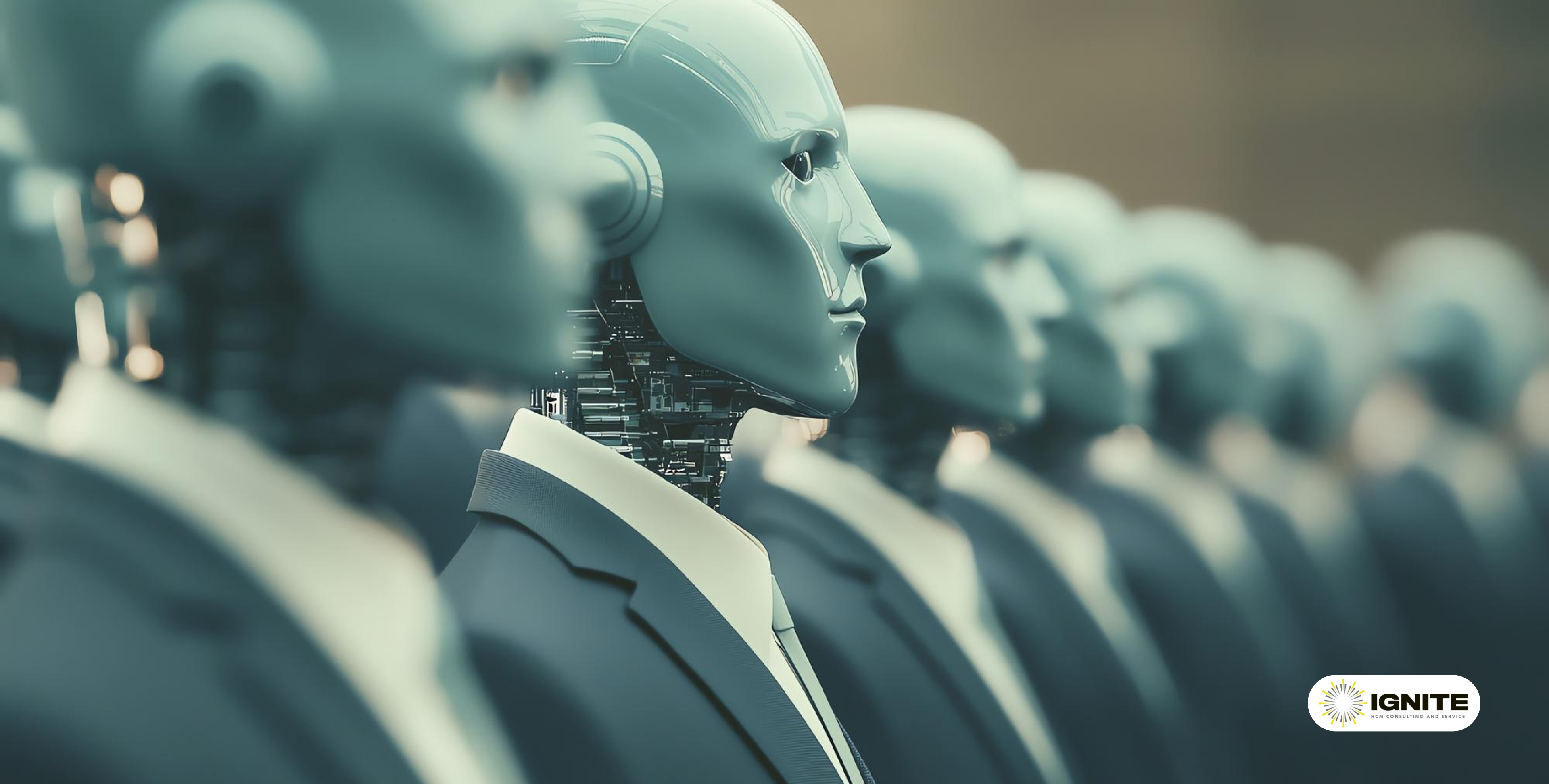The rapid advancement of artificial intelligence (AI) has revolutionized various industries, including recruitment and selection. AI-powered tools are increasingly utilized to streamline hiring processes, enhance efficiency, and reduce human bias. However, as with any transformative technology, implementing AI in recruitment raises significant ethical considerations that require careful attention.
This article explores the benefits and risks of using AI in hiring, examines the ethical implications, and discusses best practices for ensuring fairness, transparency, and accountability in AI-driven recruitment and selection.
The Rise of AI in Recruitment and Selection

AI has the potential to redefine how organizations attract, assess, and hire talent. Some of the most common applications of AI in recruitment include:
- Resume Screening: AI algorithms rapidly analyze resumes, identifying qualifications, skills and ranking candidates based on role suitability.
- Candidate Assessment: AI tools administer and evaluate pre-employment assessments, such as cognitive and personality tests.
- Interview Scheduling: AI chatbots streamline interview scheduling, reducing administrative workloads and enhancing candidate experience.
- Video Interviews: AI analyzes video interviews, evaluating expressions, tone, and language to assess candidate compatibility with the role and company culture.
Potential Benefits of AI in Recruitment and Selection
The use of AI in recruitment offers several advantages:
- Increased Efficiency: AI processes large volumes of candidate data quickly, reducing the time and resources required for manual screening.
- Reduced Human Bias: AI algorithms can minimize unconscious bias, ensuring candidates are evaluated based on objective criteria rather than personal characteristics like race, gender, or age.
- Improved Candidate Experience: AI tools create a more streamlined and personalized application process, providing quicker feedback and better communication.
- Enhanced Decision-Making: AI identifies patterns in candidate data, enabling more informed, data-driven hiring decisions.
Ethical Concerns and Risks

Despite these benefits, the application of AI in recruitment and selection introduces ethical concerns:
- Algorithmic Bias: AI systems are only as unbiased as their training data. If this data contains historical biases or lacks representation, AI may perpetuate or amplify biases.
- Lack of Transparency: Many AI systems operate as "black boxes," making it challenging to understand how decisions are reached, which complicates identifying and addressing potential biases.
- Privacy Concerns: AI tools often require access to sensitive personal information, such as social media profiles or biometric data. Safeguarding this data is essential to maintain candidate trust and comply with data protection regulations.
- Dehumanization of the Hiring Process: Over-reliance on AI can lead to a dehumanized hiring experience, with candidates feeling evaluated by machines rather than people. This can harm the candidate experience and employer brand.
Best Practices for Ethical AI in Recruitment and Selection
To balance AI’s benefits with ethical considerations, organizations should adopt the following best practices:
- Ensure Data Quality and Diversity: Regularly audit AI training data to ensure it is accurate, current, and representative of a broad population, reducing the risk of algorithmic bias.
- Implement Transparency and Explainability: Develop AI systems that provide clear decision explanations, allowing recruiters and candidates to understand the system’s conclusions and identify any biases.
- Maintain Human Oversight: While AI can support decision-making, it should not replace human judgment. Ensure that human recruiters remain involved, using AI insights as one of several decision-making inputs.
- Prioritize Privacy and Security: Implement strong data privacy measures to protect candidate information, and transparently communicate data collection, use, and storage practices. Comply with relevant regulations, such as GDPR.
- Foster a Human-Centric Approach: Design AI tools to enhance the candidate experience by complementing human interactions rather than replacing them. Provide candidates with meaningful engagement opportunities with recruiters and hiring managers.
- Regularly Audit and Monitor: Continuously monitor AI systems for biases or errors and conduct audits to ensure accuracy and fairness. Be prepared to adjust systems as needed.
The Future of AI in Recruitment and Selection

As AI technology advances, its role in recruitment is likely to expand, potentially enabling:
- Personalized Candidate Experiences: AI may allow for highly customized job recommendations, interview questions, and feedback based on individual strengths and preferences.
- Predictive Analytics: AI could help predict candidate success and retention, enabling more informed hiring decisions and reducing turnover.
- Enhanced Bias Reduction: With sophisticated algorithms and diverse training data, AI may play an increasing role in reducing human bias in hiring.
However, as AI becomes integral to recruitment, organizations must remain vigilant about ethical implications and commit to fairness, transparency, and accountability.
Conclusion
The use of AI in recruitment and selection offers significant benefits, from increased efficiency and reduced bias to improved candidate experience and data-driven decision-making. However, organizations must also be mindful of the ethical concerns surrounding AI, such as algorithmic bias, transparency issues, privacy concerns, and the risk of dehumanizing the hiring process.
By adopting best practices—ensuring data quality, fostering transparency, maintaining human oversight, prioritizing privacy, creating human-centered systems, and conducting regular audits—organizations can leverage AI while managing ethical risks.
As AI continues to shape recruitment and selection, organizations must stay committed to ethical AI practices to foster fairness, diversity, and inclusion in the workplace.






